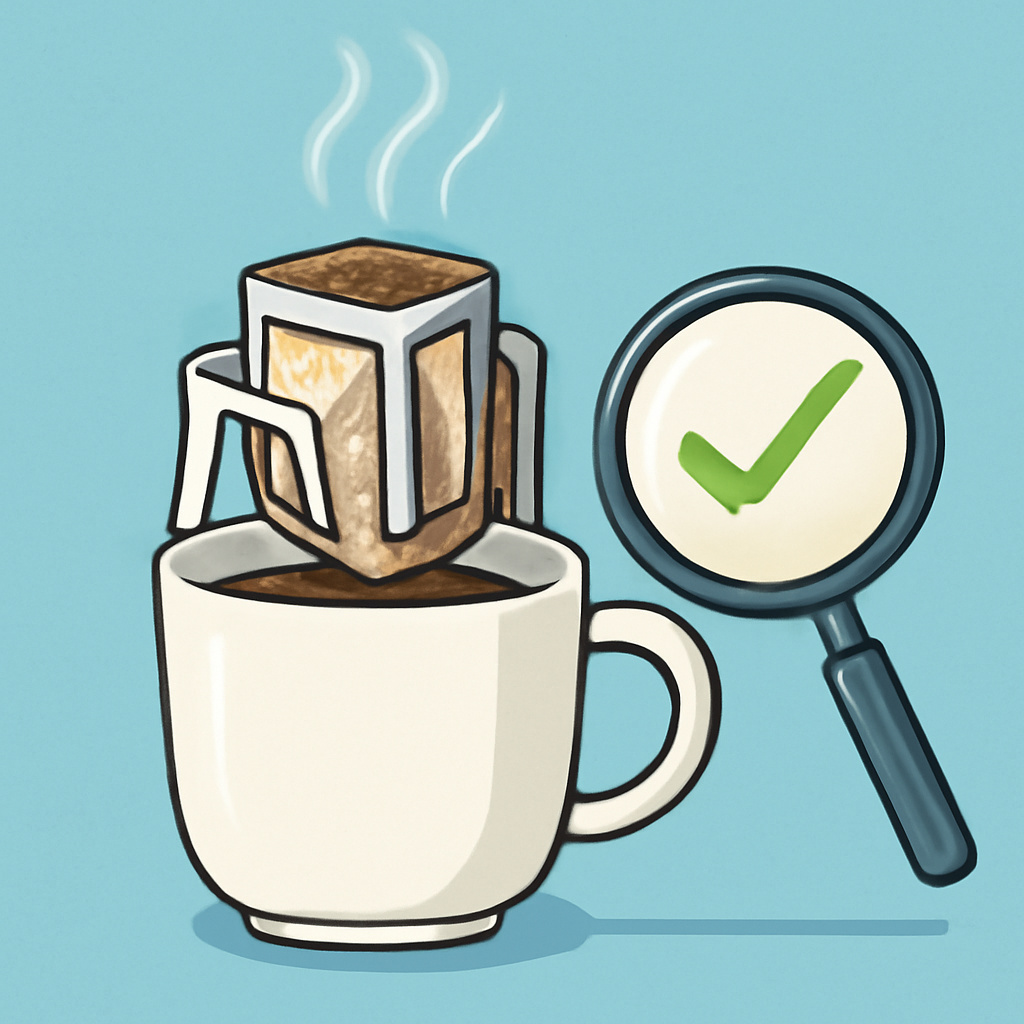Drip coffee filters have become an essential tool for single-cup, convenient brewing. But convenience shouldn’t come at the expense of safety. At Tonchant, we design and manufacture drip coffee filters that meet stringent food safety standards, ensuring roasters, hotels, and retailers can serve single-cup coffee with confidence.
Why Food Safety Certification is Important
When hot water contacts the filter paper, any non-food-grade residue or contaminants can leach into the cup. Certifications and test reports are more than just paper documentation; they verify that the paper, ink, and any adhesives comply with established food contact limits. For buyers, certified filter paper reduces regulatory risk and protects brand reputation.
Key certifications and regulatory compliances to focus on
ISO 22000 / HACCP – Demonstrates management systems and hazard controls for food contact production.
FDA Food Contact Compliance – Products sold in or imported into the United States must meet this requirement.
EU Food Contact Regulation – Applies to filters and packaging sold in the European market.
LFGB or equivalent national approval – useful for German and some EU retailers.
Tonchant manufactures under a food safety system and provides compliance documentation to support international sales and retail launches.
Support safe materials and structures
The selection of raw materials for food-safe drip irrigation bags is crucial: chlorine-free, food-grade pulp; non-toxic adhesives; and inks formulated for direct or indirect food contact. For compostable production lines, the plant-based PLA liner and unbleached pulp must also be certified for industrial compostability without compromising safety. Tonchant sources certified pulp and tracks each batch of material from incoming inspection through production.
Which tests actually prove a product is safe
Manufacturers should conduct a series of tests on raw materials and finished products:
Comprehensive and specific migration testing is performed to confirm that no harmful substances migrate into hot water.
Perform heavy metal screening to check if the levels are below the prescribed limits.
Microbiological testing ensures that the filters are free of spoilage organisms and pathogens.
The sensory panel confirms that the filter does not impart off-flavors or tastes to the brewed coffee.
Tonchant’s lab performs routine batch testing and retains technical reports that buyers can request for due diligence.
Production controls to prevent contamination
Certified production requires not only testing but also process control. Key steps include controlled material handling, clean molding rooms, temperature and humidity control, and regular employee and equipment hygiene audits. Tonchant employs these measures on every production line to ensure traceability and prevent cross-contamination.
Buyers should demand quality assurance and traceability
Before placing a bulk order, please request: copies of relevant certificates; migration and microbiological batch testing reports; details of the retention sample policy; and the supplier’s corrective action procedures. Tonchant provides a batch number, retention samples, and a quality control summary for each shipment, allowing customers to track and verify quality long after delivery.
Performance and safety go hand in hand
Safe filters must also exhibit consistent breathability, wet tensile strength, and a good fit with the selected filter. Tonchant combines laboratory safety testing with real-world brewing trials to ensure filters meet both sensory and safety benchmarks. This dual approach protects consumers while supporting a repeatable barista workflow.
Private label and export considerations
If you’re creating a private label line, ask your supplier to include food safety documentation with your export packaging. Documentation requirements vary by market; for example, EU buyers typically require a clear EU food contact declaration of compliance, while US importers require an FDA declaration of compliance. Tonchant packages compliance documentation with private label products to streamline customs and retail processes.
Buyer’s Checklist
Request copies of ISO 22000, HACCP and relevant national food contact certificates.
Ask for the latest migration and microbiological testing reports for the SKUs you plan to purchase.
Verify retained sample policy and lot traceability.
Conduct side-by-side brew tests to confirm there are no sensory impacts.
Verify that the packaging materials and inks used meet the same food safety standards.
Final Thoughts
Food safety certification is the foundation of a trustworthy drip bag product. For roasters and brands, choosing a supplier that combines certified materials, rigorous testing, and robust production controls protects both your customers and your reputation. Tonchant’s food-grade manufacturing, batch testing, and export documentation make it easy to source drip bag filters that are both safe and suitable for baristas.
For samples, test reports or a private label quote with complete compliance documentation, please contact Tonchant’s Technical Sales Team and request our Food Safe Export Pack.
Post time: Sep-28-2025







